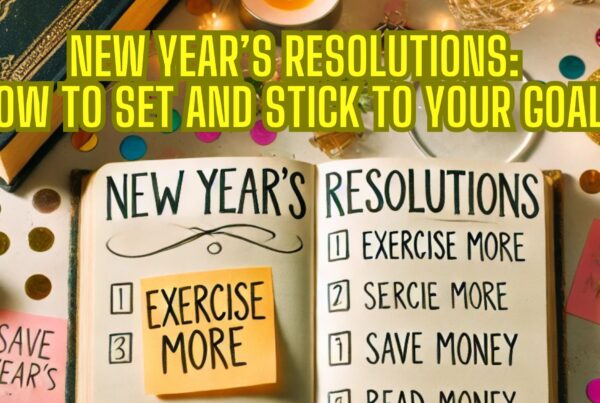Mastering Emotion for Action: The Key to Achieving Life Goals
In the pursuit of personal and professional goals, a common obstacle often lies not in the lack of knowledge or ability, but in the realm of emotion. Procrastination, unhealthy habits, and inertia are frequently symptoms of an emotional blockade rather than a deficit of understanding. The real challenge, therefore, is mastering the art of manipulating our own emotions to foster action. This blog explores the intriguing concept of ‘Mastering Emotion for Action’, offering insights and practical strategies to turn our aspirations into achievements.
The Emotional Roots of Inaction
Every instance of inaction, at its core, is an emotional challenge. Whether it’s delaying an important task or indulging in harmful habits, these actions are less about a rational choice and more about an emotional state. We often know what is good for us but fail to act on it because, in that moment, our emotions steer us otherwise. Understanding this emotional dimension is crucial in overcoming the barriers to our goals.
The Environment as a Behavioral Catalyst
Contrary to popular belief, the most significant factor in behavior change is not willpower or motivation but the environment. An environment conducive to your goals can make the desired change almost inevitable. For instance, if weight loss is your goal, having a kitchen stocked with healthy food options can significantly influence your eating habits. Similarly, if waking up early is a challenge, placing your alarm clock across the room forces you to get out of bed to turn it off. Thus, by intentionally crafting our surroundings, we set ourselves up for success.
Incentives: Rewarding Progress
The second most powerful tool in influencing behavior is the creation of incentives. This involves setting up rewards and punishments for our actions. For example, you might reward yourself with a small treat after completing a workout or impose a fine on yourself for each day you don’t work on your project. This system of incentives can dramatically boost your motivation and commitment to your goals.
The Do Something Principle
A remarkable strategy for overcoming inertia is the ‘Do Something Principle’. Often, action is not a consequence of motivation but the cause of it. When stuck, engaging in any small, related task can kickstart your journey towards your goal. For instance, if you’re struggling to start writing a book, simply opening a document and typing the title can set the wheels in motion. This principle emphasizes that action, however small, is a powerful catalyst for further action and motivation.
Leveraging Social Pressure
Social pressure is a potent force that can be harnessed to drive action. By sharing your goals with others or making public commitments, you tap into the power of social accountability. This not only motivates you to act to avoid social embarrassment but also provides a support system to help you stay on track.
Embracing Failure as Progress
An essential aspect of goal pursuit is understanding that failure is not the opposite of success, but a part of it. Every setback provides valuable lessons and insights that contribute to personal growth. Recognizing that failure is a step forward demystifies the journey towards your goals and reduces the fear of taking risks.
Inspiration for this blog came from a recent video post from Mark Manson. Check it out below.
Release Hypnosis Melbourne Hypnotherapy
Since 2015, Lawrence Akers has been working under the name Release Hypnosis offering Hypnotherapy and ACT based work to the people of Melbourne or an online service. Based on St Kilda Rd, Release Hypnosis is an easy and convenient location to get to and accessible by the ANZAC station train and tram stop. Release Hypnosis can help with a wide range of presenting issues, and I offer a free 30 minute no obligation discovery call for those who are unsure if hypnotherapy is the right way forward for them.
Book Your FREE 30 Minute Consultation With Release Hypnosis NOW!
You may also like to read:
Discovering Purpose and Values: A Path to Mental Well-being
Can’t Visualise in Hypnosis? Here’s What You Can Do Instead.
Dealing with Financial Stress and Crisis: Finding Peace Amid Turbulence
What Is The Success Rate of Hypnosis?
Release Hypnosis Melbourne Hypnotherapy is accessible for people in: Abbotsford, Armadale, Albert Park, Balwyn, Bentleigh, Black Rock, Box Hill, Brighton, Brunswick, Bulleen, Bundoora, Camberwell, Canterbury, Carnegie, Caulfield, Chadstone, Cheltenham, Clayton, Coburg, Collingwood, Deer Park, Doncaster, Elsternwick, Eltham, Elwood, Epping, Essendon, Fairfield, Fitzroy, Footscray, Glen Iris, Glen Waverley, Glenhuntly, Greensborough, Hampton, Hawthorn, Heidelberg, Highet, Ivanhoe, Kew, Kooyong, Lalor, Laverton, Lower, Plenty, Macleod, Malvern, Middle Park, Moonee Ponds, Melbourne, Moorabbin, Mount Waverley, Murrumbeena, Northcote, Oakleigh, Ormond, Parkville, Pascoe Vale, Port Melbourne, Prahran, Preston, Richmond, Rosana, Sandringham, South Yarra, South Melbourne, Spotswood, St Albans, St Kilda, Surrey Hills, Templestowe, Thornbury, Toorak, Tullamarine, Williamstown, Yarraville, North Melbourne, Windsor, East Melbourne, Melbourne, Melbourne CBD, Melbourne 3004








